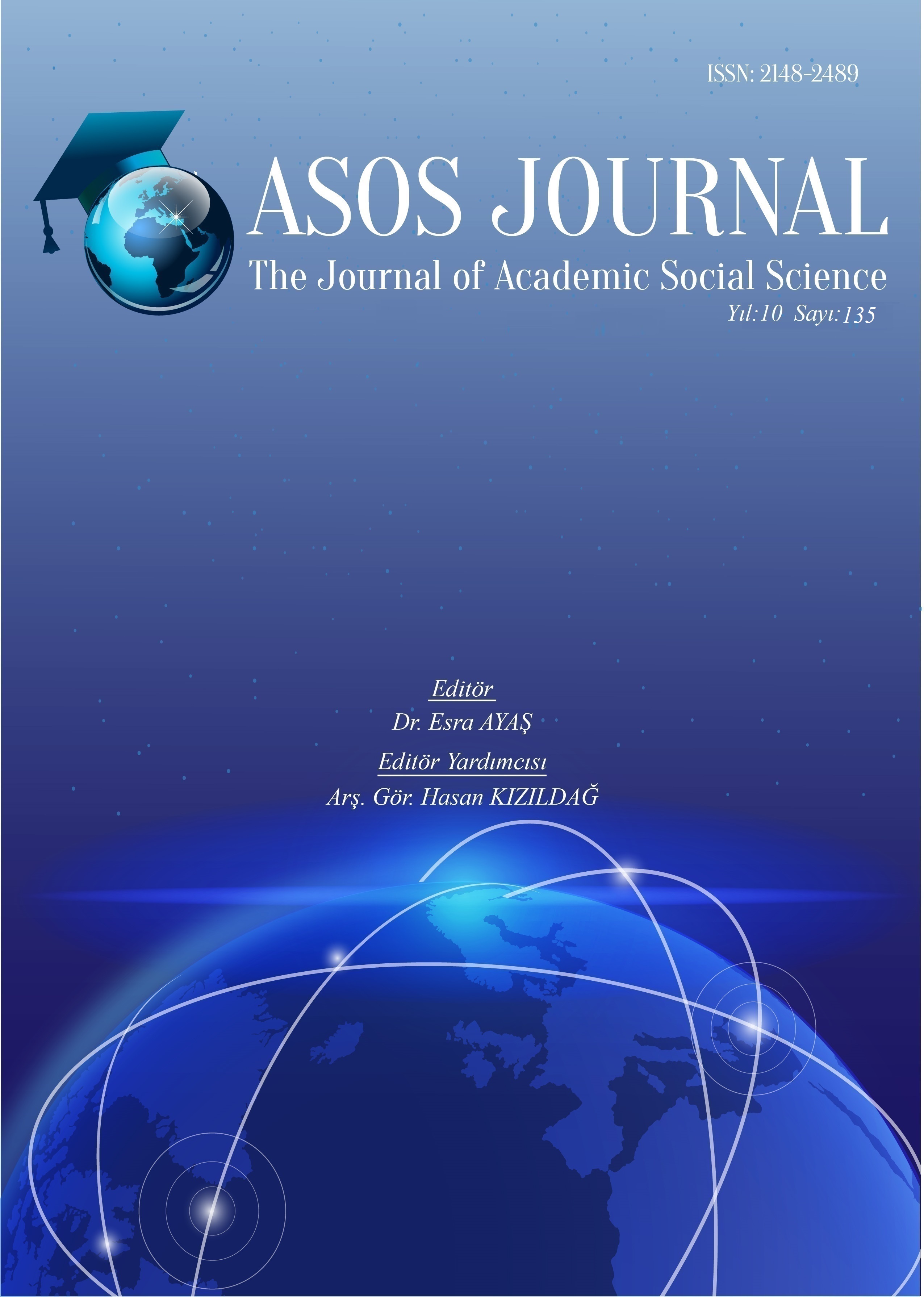CHRISTIAN MIGRATIONS IN IRAQ BETWEEN 1980-2020 IN THE CONTEXT OF POLITICAL AND HUMANITARIAN DYNAMICS
Author :
Abstract
Bu çalışmanın amacı, 1980-2020 yılları arasında Irak bölgesinde meydana gelen savaş ve terör olaylarından dolayı oluşan Hristiyan (Nasturi, Keldani, Ermeni vb.) göçlerini göç kavramı bağlamında incelemektir. Çalışmanın temel sorusu: “söz konusu göçlerin siyasi, dinî, kültürel ve sosyal boyutları neler olmuştur?” Bu temel soru etrafında bir literatür taraması yapılıp elde edilen veriler analiz edilmiştir. Yüzyıllarca Kürtlerle hem Hakkâri’de hem de Kuzey Irak’ta yaşayan Hristiyanlar tarihte çok defa göçe maruz kalmışlardır. Bu çalışmada 1915’te Hakkâri’den İran ve daha sonra Irak’a göç eden Hristiyanların özellikle de Nasturilerin bölgedeki siyasal istikrarsızlıkların etkisi ile Avrupa ülkelerine göç ettikleri bulgusuna rastlanmıştır. Bu istikrarsızlıklar: İran-Irak Savaşı (1980-1888), Körfez Savaşı, Irak Cumhurbaşkanı Saddam Hüseyin’in Kürtler üzerinde başlattığı soykırımdan Hristiyanların da etkilenmesi gibi nedenlerle çıkmıştır. Bunun yanında Irak’ın Amerika tarafından işgali (2003) ve nihayetinde 2011 yılında IŞİD (Irak Şam İslam Devleti) tarafından başlatılan terör, Hristiyanların göç etmesinde etkili olan başka olaylardır. Çalışma verileri, Irak üzerinde yazılan eserlerden sadece Hristiyan göçü ile ilgili kısımların alınması ile elde edilmiştir. Konu ile ilgili literatür tarandığında, hassaten Hristiyan göçü üzerinde veri olmamakla birlikte muhtevasına girilmeden Hristiyan göçlerine de değinilen eserlerdeki bilgiler toplanıp Türkçeye çevrilmiştir. Gerek akademik platformlarda ve gerekse de Google taramasında sadece 1980 sonrasında Irak’ta meydana gelen Hristiyan göçlerine değinen çalışmaya rastlanmamıştır. Bu bakımdan bu çalışma, söz konusu göçle ilgili parçacıl verilerin toplanıp akademik alana sunulması noktasında önemli bulunmuştur. Çalışmada mülteci, sığınmacı, göçmen gibi tanımlamalar geçmesinin yanında zorunlu ve isteğe bağlı göçlerden de söz edildiği için bu kavramlar teorik çerçeve başlığı altında açıklanmıştır. Analiz bölümünde Hristiyan göçleri söz konusu göç ile ilgili kavramlar bağlamında analiz edilmiştir.
Keywords
Abstract
The aim of this study is to examine the Christian (Nasturi, Chaldean, Armenian, etc.) migrations that occurred due to the war and terror events that occurred in the Iraq region between 1980-2020 in the context of the concept of migration. The main question of the study is: "What have been the political, religious, cultural and social dimensions of these migrations?" A literature review was conducted around this basic question and the data obtained were analyzed. Christians who have lived with Kurds for centuries in both Hakkari and Northern Iraq have been subjected to migration many times in history. In this study, it was found that the Christians who migrated from Hakkari to Iran and then to Iraq in 1915, especially the Nestorians, migrated to European countries with the effect of political instability in the region. These instabilities are: The Iran-Iraq War (1980-1888), the Gulf War, the genocide initiated by Iraqi President Saddam Hussein on the Kurds also affected Christians. In addition, the American invasion of Iraq (2003) and the terror launched by ISIS (Islamic State of Iraq and the Levant) in 2011 are other events that have influenced the migration of Christians. The study data were obtained by taking only the parts related to Christian migration from the works written on Iraq. When the literature on the subject was reviewed, although there was no data on Christian migration in particular, the information in the works that touched on Christian migrations without entering into the content was collected and translated into Turkish. Both academic platforms and Google browsing did not find studies that only touched on Christian immigration in Iraq after 1980. In this respect, this study was found important in terms of collecting fragmentary data on migration in question and presenting them to the academic field. In addition to the definitions such as refugee, asylum seeker and migrant in the study, these concepts are explained under the theoretical framework title as compulsory and voluntary migrations are also mentioned. In the analysis section, Christian migrations are analyzed in the context of the concepts related to this migration.





